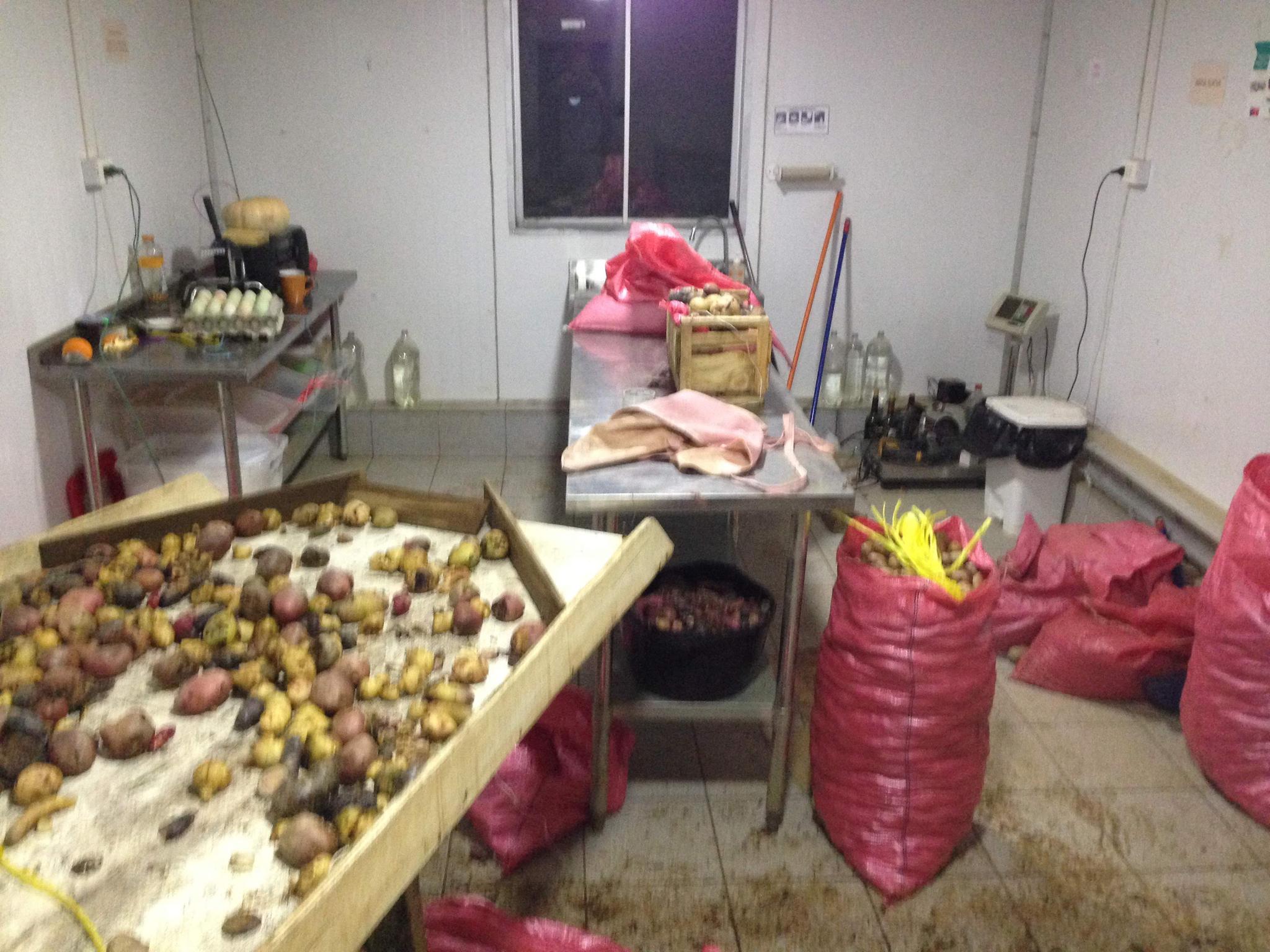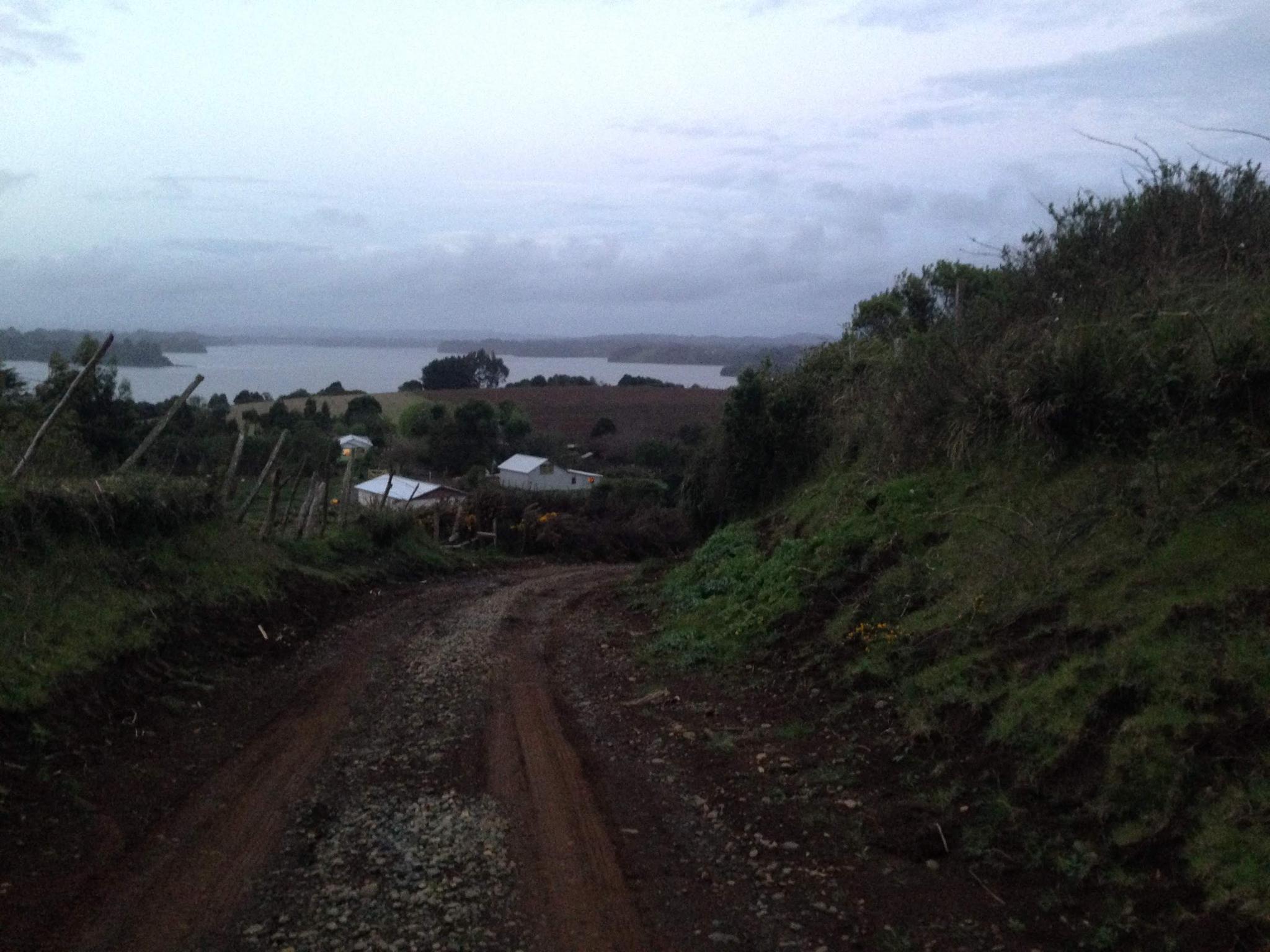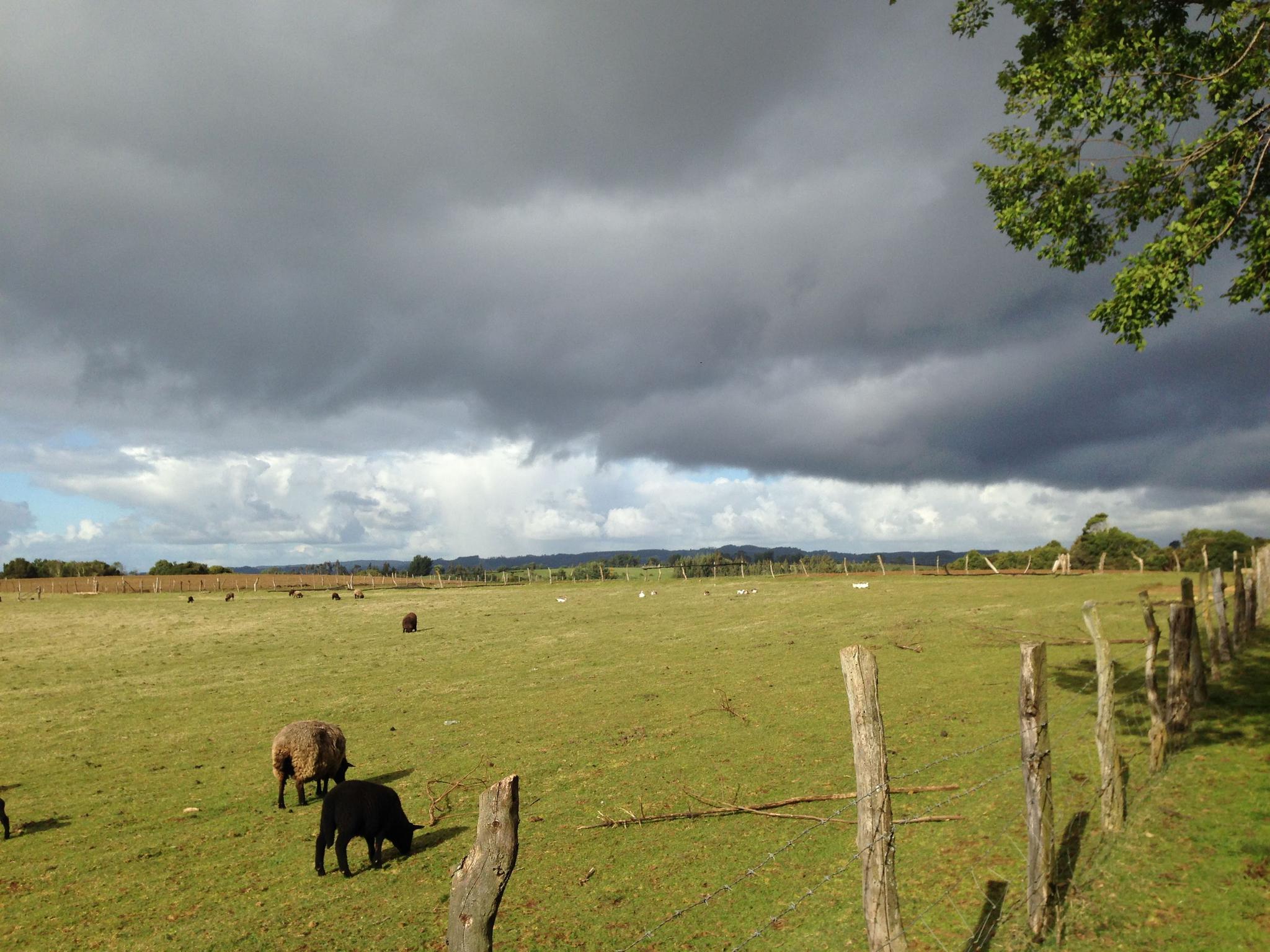Changing Toward the Modern and Traditional
One family attempts to honor indigenous traditions while building an agricultural business in Chile's least developed region
This is the second piece in a three-part series on Chile's recent past, present and future. The first article is Pinochet's Ghosts and the third Debts, Hard Work, and Lazy People.
Mapuche Zone, Chile
September 2018
I meet Juan on a Saturday night at the bus station in Santiago. We will be descending together to the Mapuche Zone, an eight hour night bus ride. Juan and his wife are the owners of the farm where I will volunteer for two weeks in exchange for food and lodging.
Juan is in his early forties and a former engineer who worked for a decade in Santiago. Juan met his wife Maria, an indigenous woman from the Mapuche Zone, in Santiago. After having a child in Santiago, Maria and Juan decided to move back to Mabel’s family’s land and farm. “We wanted our children to have a childhood where they could roam freely and not worry,” says Juan. Additionally, in the Mapuche zone the children learn the Mapuche language in school in order to revitalize it. Many older Mapuches speak little to none of their language after years of cultural and linguistic repression.
Every Friday night Juan takes a night bus from the Mapuche Zone to Santiago. After sleeping on the bus, a paid helper picks him up. Juan spends the day selling his organic produce in markets in Santiago. He then returns to the Mapuche Zone on Saturday night, sleeping on the bus. From the bus stop in Carahue, the closest town to the farm, it is a forty minute drive. Juan pays a relative of his wife to drive him home. Juan usually takes Sundays off before commencing again his 10 to 12 hour workdays Monday through Friday.
Juan, in addition to his heavy workload as a farmer, is a businessman. He must consider at what price to sell his produce, what seeds to plant based on projected demand, and what equipment to buy and maintain.
Maria handles the organic specialty food production and also must think like a businesswoman. Maria decides which speciality organic breads and jams to make and at what price Juan should sell them in Santiago.
Juan tells me that recently he was forced to raise the price of one of the varieties of his organic potatoes due to rising costs on the farm. Juan worried about how this might hurt his business. To his surprise, he actually sold more potatoes. People assumed that a higher price means higher quality even though they were the same product.

Juan says he also benefits from the aura of the Mapuche Zone. People in Santiago have a vision of the Mapuche Zone as pure, earthy and unpolluted. Farm products from the region are assumed to be of a higher quality.
Santiago, where he sells his product, has people ready to spend two dollars for a bag of four to five organic potatoes and five dollars for a loaf of organic bread. I am incredulous that people pay these prices where the GDP per capita is less than one-third that of the United State. “There are people with serious money in Santiago,” Maria says. As 2019 protests against the high cost of living will make clear, there are also many people who spend 30 percent of their 400 dollars of their minimum monthly wage on subway fares. Chile is a country of extreme inequality.
Although he sells a product at a high price to monied Chileans, Juan is on the other side of Chile’s vast economic divide. Juan pays a neighbor to plow his field since he does not have his own tractor. For his fields that are not accessible to a tractor because of road conditions, Juan uses oxen to plow. Since everything is organic, as the oxen uproot the weeds we must manually dispose of the weeds rather than use pesticides. It is grueling and slow work.
Maria grew up on the farm and says that electricity and running water did not arrive until 2001. The roads in the area are still unpaved. The Mapuche Zone is known as the least developed and poorest region in Chile.
Juan and Maria’s house has electricity but lacks running water inside. To shower, we must walk 20 seconds outside to the industrial kitchen where there are bathing facilities. There is no central heating in the house. They are not investing in the house because they hope to get the government to build them one. To discourage the abandonment of the countryside, the government offers new houses to farmers. Maria’s brother, who lives next door, already got his approval and is waiting for ground to break. Juan and Maria applied for the same program but were rejected but are unsure why. They will reapply soon.
Juan has been able to take advantage of a recent change to a Pinochet-era anti-union law that now allows cooperatives (this change was mentioned in Pinochet’s Ghosts). Juan wants to mobilize the area’s farmers to demand better prices from transport companies. “So many farmers live hand to mouth here even though they are very gifted at farming the land. They just accept the poor prices offered by transport companies without realizing how poor the profits are. The isolation of this region, the poverty of farmers, the monopolization of the transportation sector, and the historical lack of cooperatives all play a role.” As a way to jump-start the cooperative, Juan sells the products of other local farmers directly in Santiago. The higher profits prove to the farmers the cooperative is an idea worth pursuing. Although an outsider, Jaun is helping the local indigenous gain greater autonomy in the market economy.
Over conversations while plowing the fields, Juan speaks forcefully about how the local farmers are getting the short end of the stick. He has an almost messianic quality in how he wants to help improve the living conditions of the local farmers. His forceful personality is both a blessing and a curse while forming the cooperative. His outsider status -- as someone who has worked in business in the capital -- is likewise a double-edge sword.
Despite having innovative ideas and relentless energy, Juan will always be handicapped by his lighter-skin and city roots. With good reason, many Mapuche distrust outsiders. Similar to the indigenous genocides elsewhere in the Americas, whites first took Mapuche land and then were told by the dictator Augusto Pincochet, who ruled Chile until 1990, that the Mapuche people did not exist.
While promoting the cooperative in the community, a Mapuche woman told Juan that he had a “mercantil mind” to insinuate that he only cared about profit and not the community. Maria says that this mistrust is inevitable given both Juan’s outsider status and aggressive attempts to change the farmer’s business methods. A light-skinned man marrying into a land-owning Mapuche family who then shakes up the established order under the guise of improving the locals’ condition does look awfully neo-colonial even if Juan himself has pure intentions.
Just collecting the products themselves from the cooperative members, however, is a major challenge. In preparation for a trip to Santiago, Maria, Juan, their two girls and I go to a farmer’s home to get organic eggs Juan will sell in the city. While probably just a few kilometers in distance to the farmer’s home, Juan’s very old van struggles mightily to get up his hill to the unpaved main road. The recent rains have created mud pits on the road.

After a hearty meal and good conversation at the farmer’s home, we load the eggs in the van. Five or so minutes into our drive back, the headlights give out. It is pitch-dark, raining, and the road is muddy. Triple A is nowhere close. We all take out our cell phones and project them forward from the dash. This gives Juan just enough light to drive home safely. Nothing daunts Juan and it is impossible not to admire him.
After about 12 days, the rustic novelty of Juan and Maria’s place begins to wear-off as I must brave torrential downpours just to relieve myself or take a shower. While Juan and Maria are fantastic hosts and Juan’s patience with my lack of farming skills was extraordinary, I need both a look at another region of Chile and time in civilization. I make plans to go to another farm further south on the Isle of Chiloe on the edge of Patagonia. I stop off in beautiful Puerto Varas for a night to sit by a warm fire inside with my wife who is vacationing there with her dad before heading on the Chiloe. I will find that Chilohe, despite its distance from the capital, strong indigenous roots, and relative isolation, is still haunted by the ghosts of Pinochet.

